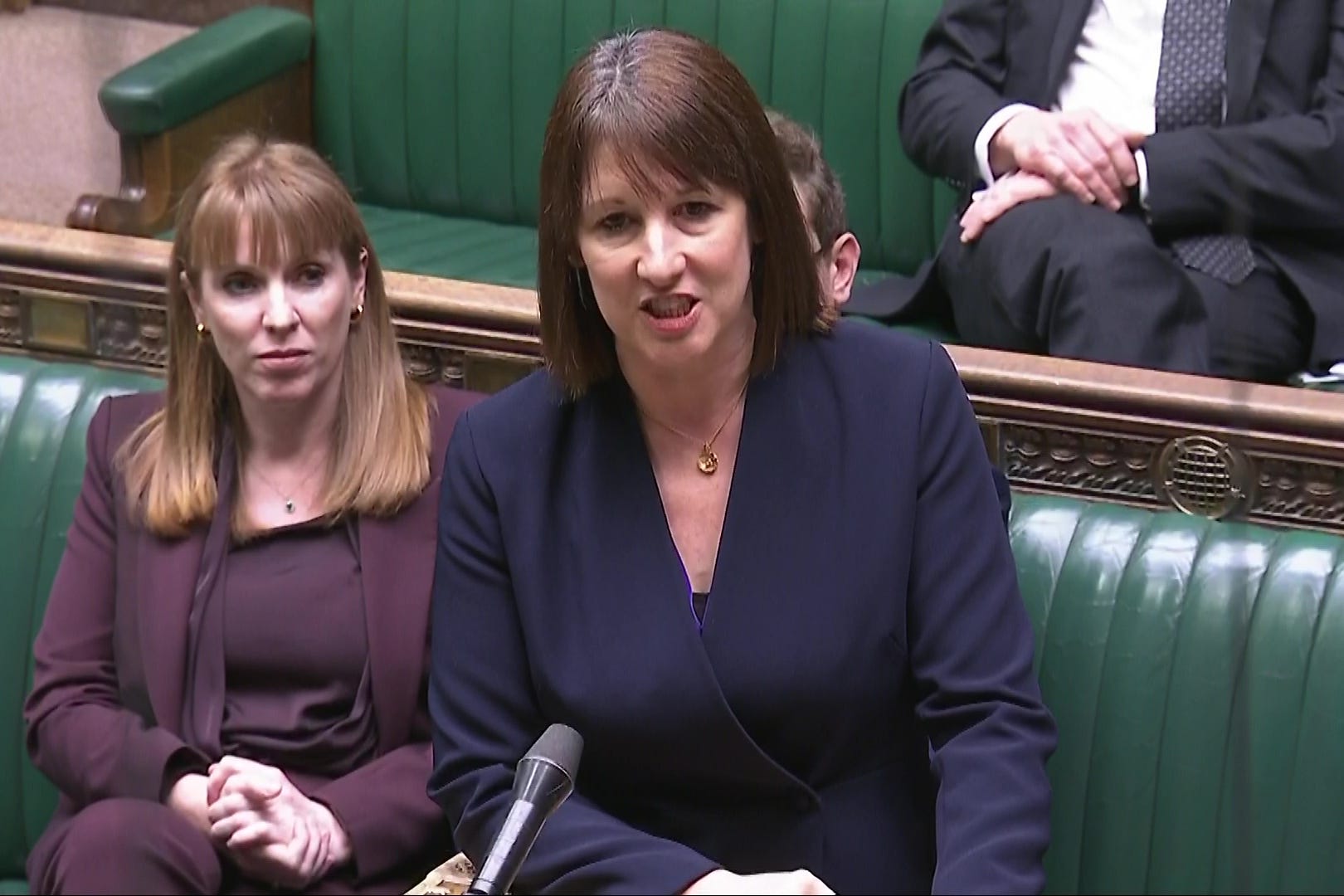
For free real time breaking news alerts sent straight to your inbox sign up to our breaking news emails
Sign up to our free breaking news emails
Sign up to our free breaking news emails
I would like to be emailed about offers, events and updates from The Independent. Read our privacy policy
Inflation fell unexpectedly in December in a boost for chancellor Rachel Reeves, who is under growing pressure after days of economic turbulence.
The rate of Consumer Prices Index (CPI) inflation fell to 2.5 per cent in December from 2.6 per cent in November, the Office for National Statistics said. Most analysts had been expecting the inflation rate to remain unchanged at 2.6 per cent last month.
The figure is still above the Bank of England’s 2 per cent target, which means that the central bank is less likely to want to rapidly bring down interest rates, meaning higher costs for borrowers but better rates for savers.
Click here for the latest updates

It comes amid growing pressure on the chancellor amid rising borrowing costs, the pound declining in value and plummeting business confidence.
Chief secretary to the Treasury Darren Jones said the fall in inflation shows that the “prime minister’s plan for change is working”, but admitted the government still has “more to do”.
“Inflation coming down is good news for families across the country”, he told Sky News.
“We know the cost of living is still a problem for lots of people. The target is 2 per cent, it’s come down at 2.5 per cent, this is obviously much more stable than we had a few years ago, where it was peaking at 11 per cent and driving everybody to worry about their mortgage and rent and energy bills.
“So it’s good news that inflation is coming down. It shows the prime minister’s plan for change is working in terms of stability across the economy, but we’ve still got more to do.”
While the Tories welcomed the fall in inflation, shadow chancellor of the Exchequer Mel Stride took aim at some of Labour’s budget measures since coming into office, accusing the government of having killed economic growth “stone dead”.
“Whilst this month’s reduction in inflation is welcome news, there are still challenges ahead, not least the National Insurance hikes - some of which will be passed on in higher prices - have yet to bite”, he said.
“What is key for our economy is to get growth going, but this has been killed stone dead by this government. The Chancellor needs to urgently explain how she will now achieve this.”
Grant Fitzner, the ONS’s chief economist, said: “Inflation eased very slightly as hotel prices dipped this month, but rose a year ago.
“The cost of tobacco was another downward driver, as prices increased by less than this time last year.
“This was partly offset by the cost of fuel and also second-hand cars, which saw their first annual growth since July 2023.”
Analysts expect that rising oil prices could start to feed into inflation figures. Higher petrol and diesel costs feed into most other prices as any goods requiring transport or processing will require costlier energy. Brent crude oil has risen 10 per cent in the last month to more than $80 a barrel.
Increases to the National Living Wage which kick in April could also push up prices as shops and factories pay more for wages and have to recoup their costs. The new rate will be £12.21 for workers aged 21 or more.
Sir Keir Starmer is facing growing calls to sack his chancellor amid growing turbulence in the economy, with Mr Stride on Tuesday comparing her position to a Shakespearean tragedy, adding: “To go or not to go? That is now the question.”
On Monday, Downing Street was forced to insist that Ms Reeves will be the chancellor “for the whole of this parliament”, just hours after the prime minister had appeared reluctant to back her, avoiding the “yes or no” question of whether she would still be in place at the next election.
Facing a grilling from MPs in the Commons on Tuesday over the rising cost of government borrowing and the recent falls in the value of the pound, the chancellor admitted they underlined the need to go “further and faster” in search of economic growth.
And she refused to rule out future spending cuts, saying she would not write “five years of budgets in the first six months of a Labour government” as she doubled down on a commitment to stick to the government’s fiscal rules.
The rules require day-to-day spending to be met from revenues rather than further borrowing. But rising borrowing costs eat into the funding available, which could force Ms Reeves to act to either reduce spending or raise taxes to comply with her rules when the budget watchdog gives its updated forecast in March.

 By The Independent (Business) | Created at 2025-01-15 08:38:30 | Updated at 2025-01-15 12:01:44
3 hours ago
By The Independent (Business) | Created at 2025-01-15 08:38:30 | Updated at 2025-01-15 12:01:44
3 hours ago





